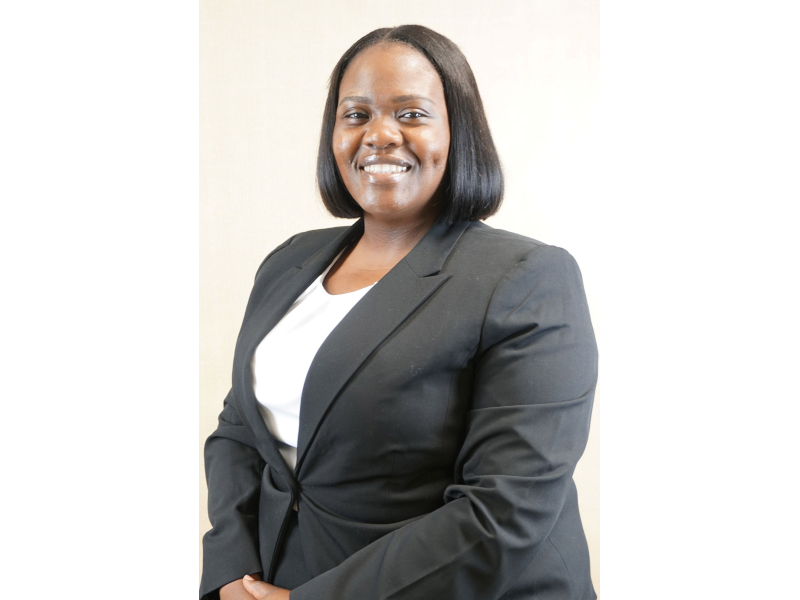The greatest challenge to teaching during an unprecedented pandemic is the human disconnect from the students, said Richmond County School System’s teacher of the year Joetta Smith.
“We feed off the students’ energies, and they feed off our energy,” she said. “So, virtually, we have to work double time, especially when we are not in the same environment.”
Smith instructs freshmen, sophomore and junior level students in algebra and geometry at Butler High School. COVID-19 required that she move her expertise from the classroom to the online Canvas learning management system. She teaches six classes per day, each averaging 35 students. The online classes include up to 10 more students than the usual in-person class size.
[adrotate banner=”28″]
This year presents dilemmas educators do not typically face, Smith said. Distractions and technological issues come into play. She, like other Richmond County teachers, must teach while learning how to maneuver an unfamiliar online platform.
“Canvas is an awesome platform,” she said. “But it is difficult to try and teach and learn the different aspects of the platform all at the same time.”
Smith got a head start on Canvas because she taught summer school. She credits RCSS for rolling out the system prior to the start of the current school year. Butler High School put together a committee that paired up teachers as part of the Canvas Cares program. Instructors, who taught during the summer, lent their knowledge to assist other teachers in acclimating to the new system. Getting students used to it is difficult as well, Smith said.
Learning online changes student accountability. Unlike in-person classes, students do not necessarily show up for the synchronous meetings. It offers them more flexibility. However, the Canvas system allows teachers to see how much time a student is spending on assignments.
At the minimum, RCSS requires one instructional session per week; however, teachers also hold more flexibility. Smith points out that she bases the number of sessions on the concept that she is presenting.
“I know that one day may not be enough for that one concept that we are going over, so we may meet two times a week,” she said. “It’s really at the teacher’s discretion.”
The expectations that students complete their assignments is the same as before the pandemic struck, Smith said. Although attendance at synchronous meetings is not required, it is highly recommended. Smith answers specific questions for “distinguished students,” who require less instruction. Struggling students use the online office hours for extra one-on-one tutoring.
Smith said online learning is an adjustment for everyone involved. She misses the daily interactions with the students and said sitting in an empty classroom is hard. It is more difficult to gauge if a student is struggling when interaction is not face-to-face. The board at the front of the room no longer serves the same purpose. She must continuously present materials in a creative way.
“I don’t think any teacher in Richmond County is taking this lightly,” she said. “Because virtual learning is ten times more work than face-to-face.
[adrotate banner=”19″]
Smith’s freshmen students have never met their teacher in-person. They know her as a face and voice on a screen.
“I have tried to be as inviting as I can and make sure they understand the expectation,” she said and pointed out that this year requires increased communication between teachers, parents and students to ensure that the workload is not overwhelming. “It’s not all about education; it’s about the relationship that we have with our students, as well. They have expectations of us like we have expectations of them.”
The teachers feel responsible for trying to give senior students an enjoyable experience at the end of their high school years, Smith said. Schooling from home, in a comfortable environment, can be more difficult for students to get motivated. Expectations and morale have to be front and center in order to get through this, she said.
Everyone feels the strain of adapting to something that no one necessarily finds comfortable or appealing. Frustration presented itself, especially in the beginning of the school year, as parents tried to understand the unfamiliar expectations placed on their children. The adaptation process continues half way through the school year, according to Smith.
“I think once everyone understands the role of the students in the virtual learning, everything will go smoothly,” she said. “We are all trying to adjust.”
Smith encourages parents to reach out to their children’s teachers. Online teaching is not an easy job.
“Sometimes I think it is necessary to get information from the inside, so it can clear up some misunderstandings,” she said. “There are so many things that have been put in place by our district. If the parents and the students and everyone just reach out and just talk to a teacher, they will have a different perspective of the things that are going on. Teachers are doing their best to be present and be what the students need them to be.”
Shellie Smitley is a staff writer for The Augusta Press. Reach her at shellie@theaugustapress.com
[adrotate banner=”41″]










